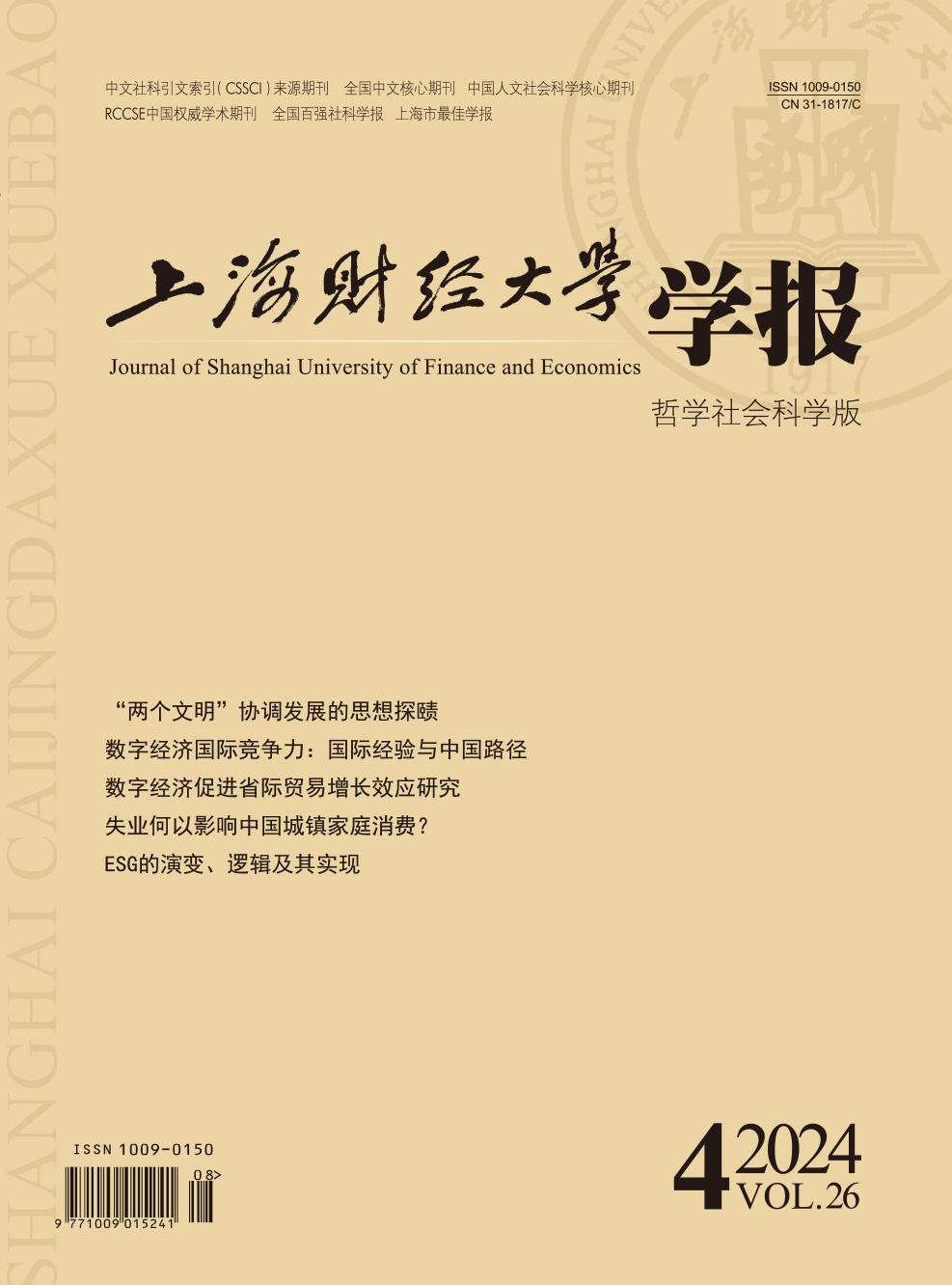数字时代核心人力资本在价值创造中的角色愈加关键,如何激励其进行持续高质量的智力投入是一个崭新而重要的研究问题。文章以2014—2021年中国A股上市公司为样本,实证检验了企业数字化转型对人力资本产权激励的影响。研究发现:企业数字化转型能够显著促进上市公司人力资本产权激励制度建设,核心员工更可能被纳入激励范围。机制检验显示,企业数字化转型能够完善公司治理结构、抑制管理者短视倾向以及提升智力资本投入,从而推动上市公司构建人力资本产权激励制度。基于人力资本产权激励制度设计的拓展研究发现,企业数字化转型显著强化了人力资本产权激励制度的激励导向特征,主要体现在各类限制和对赌条款的引入。此外,实施人力资本产权激励制度提升了企业创新质量和企业价值,且这种促进作用主要来自核心员工激励,而非管理层激励。文章揭示了企业数字化转型对激励制度设计的赋能效应,为数字经济时代完善公司治理机制和实现企业高质量发展提供了重要启示。
“薪中有数”:企业数字化转型对人力资本产权激励的赋能效应
摘要
参考文献
2 陈大鹏,施新政,陆瑶,等. 员工持股计划与财务信息质量[J]. 南开管理评论,2019,(1). DOI:10.3969/j.issn.1008-3448.2019.01.004
3 陈德球,胡晴. 数字经济时代下的公司治理研究:范式创新与实践前沿[J]. 管理世界,2022,(6). DOI:10.3969/j.issn.1002-5502.2022.06.012
6 胡楠,薛付婧,王昊楠. 管理者短视主义影响企业长期投资吗?——基于文本分析和机器学习[J]. 管理世界,2021,(5). DOI:10.3969/j.issn.1002-5502.2021.05.006
10 罗进辉,巫奕龙. 数字化运营水平与真实盈余管理[J]. 管理科学,2021,(4). DOI:10.3969/j.issn.1672-0334.2021.04.012
11 吕长江,严明珠,郑慧莲,等. 为什么上市公司选择股权激励计划?[J]. 会计研究,2011,(1). DOI:10.3969/j.issn.1003-2886.2011.01.013
14 孟庆斌,李昕宇,张鹏. 员工持股计划能够促进企业创新吗?——基于企业员工视角的经验证据[J]. 管理世界,2019,(11). DOI:10.3969/j.issn.1002-5502.2019.11.008
16 戚聿东,肖旭. 数字经济时代的企业管理变革[J]. 管理世界,2020,(6). DOI:10.3969/j.issn.1002-5502.2020.06.007
18 向显湖,钟文. 试论企业经营者股权激励与人力资本产权收益[J]. 会计研究,2010,(10). DOI:10.3969/j.issn.1003-2886.2010.10.010
19 谢康,吴瑶,肖静华. 生产方式数字化转型与适应性创新——数字经济的创新逻辑(五)[J]. 北京交通大学学报(社会科学版),2021,(1). DOI:10.3969/j.issn.1672-8106.2021.01.014
22 袁淳,肖土盛,耿春晓,等. 数字化转型与企业分工:专业化还是纵向一体化[J]. 中国工业经济,2021,(9). DOI:10.3969/j.issn.1006-480X.2021.09.002
24 张永珅,李小波,邢铭强. 企业数字化转型与审计定价[J]. 审计研究,2021,(3). DOI:10.3969/j.issn.1002-4239.2021.03.006
25 郑志刚,雍红艳,黄继承. 员工持股计划的实施动机:激励还是防御[J]. 中国工业经济,2021,(3). DOI:10.3969/j.issn.1006-480X.2021.03.007
26 周茜,许晓芳,陆正飞. 去杠杆,究竟谁更积极与稳妥?[J]. 管理世界,2020,(8). DOI:10.3969/j.issn.1002-5502.2020.08.013
27 Banalieva E R, Dhanaraj C. Internalization theory for the digital economy [J]. Journal of International Business Studies, 2019, 50(8): 1372–1387. DOI:10.1057/s41267-019-00243-7
28 Commerford B P, Dennis S A, Joe J R, et al. Man versus machine: Complex estimates and auditor reliance on artificial intelligence [J]. Journal of Accounting Research, 2022, 60(1): 171–201. DOI:10.1111/1475-679X.12407
29 Demsetz H. Toward a theory of property rights [J]. American Economic Review, 1967, 57(2): 347–359.
30 Evans G L. Disruptive technology and the board: The tip of the iceberg [J]. Economics and Business Review, 2017, 3(1): 205–223.
31 Farboodi M, Mihet R, Philippon T, et al. Big data and firm dynamics [J]. AEA Papers and Proceedings, 2019, 109: 38–42. DOI:10.1257/pandp.20191001
32 Graetz G, Michaels G. Robots at work [J]. The Review of Economics and Statistics, 2018, 100(5): 753–768. DOI:10.1162/rest_a_00754
33 Hagiu A, Wright J. When data creates competitive advantage[J]. Harvard Business Review, 2020, 98(1): 94–101.
34 Jensen M C, Meckling W H. Theory of the firm: Managerial behavior, agency costs and ownership structure [J]. Journal of Financial Economics, 1976, 3(4): 305–360. DOI:10.1016/0304-405X(76)90026-X
35 Kim E H, Ouimet P. Broad-based employee stock ownership: Motives and outcomes [J]. The Journal of Finance, 2014, 69(3): 1273–1319. DOI:10.1111/jofi.12150
36 Kolbjørnsrud V, Amico R, Thomas R J. How artificial intelligence will redefine management[J]. Harvard Business Review, 2016, 2: 1-6.
37 Sebastian I M, Ross J W, Beath C, et al. How big old companies navigate digital transformation [J]. MIS Quarterly Executive, 2017, 16(3): 197–213.
38 Shleifer A, Vishny R W. A survey of corporate governance [J]. The Journal of Finance, 1997, 52(2): 737–783. DOI:10.1111/j.1540-6261.1997.tb04820.x
39 Vial G. Understanding digital transformation: A review and a research agenda [J]. The Journal of Strategic Information Systems, 2019, 28(2): 118–144. DOI:10.1016/j.jsis.2019.01.003
40 Yermack D. Corporate governance and blockchains [J]. Review of Finance, 2017, 21(1): 7–31.
41 Zhu C. Big data as a governance mechanism [J]. The Review of Financial Studies, 2019, 32(5): 2021–2061. DOI:10.1093/rfs/hhy081
引用本文
袁琛, 马连福, 张晓庆. “薪中有数”:企业数字化转型对人力资本产权激励的赋能效应[J]. 上海财经大学学报, 2024, 26(4): 32-48.
导出参考文献,格式为:





 5373
5373  8234
8234

